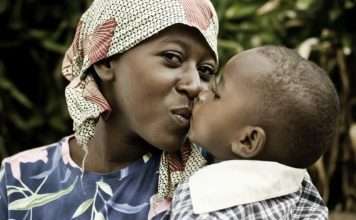Namibia, one of the countries with a high prevalence of HIV, has become the first African nation to achieve a significant milestone in eliminating the transmission of HIV and viral hepatitis B from mother to child.
The African Region Office of the World Health Organization made this announcement on Monday. According to the WHO, Eastern and Southern Africa have the highest burden of HIV in the world, and Africa accounts for the majority of new hepatitis B infections globally.
Namibia, with more than 200,000 people living with HIV, has a particularly high number of new infections among females. In contrast, Nigeria has the highest number of children born with HIV globally.
High-burden HIV countries are defined as those with more than two percent of pregnant women living with the virus.
The WHO’s 2021 viral hepatitis scorecard revealed that approximately 998,000 Nigerian children under the age of five are chronic carriers of hepatitis B, while over 11 million other Nigerians are chronic carriers of the viral infection.
Hepatitis B is commonly transmitted from mother to child during childbirth and can also be contracted through sexual contact with an infected partner, unsafe injections, or exposure to contaminated instruments.
In December 2021, Botswana became the first high-burden country to receive certification from the WHO for achieving a significant milestone in eliminating mother-to-child transmission of HIV.
“Progress is possible. Globally, 2.5 million children have avoided vertical transmission of HIV since 2010, 28,000 of whom are in Namibia. HIV testing among pregnant women is almost universally available across the country and access to treatment has led to a 70 per cent reduction in vertical transmission in the last 20 years. In 2022, only four per cent of babies born to mothers living with HIV acquired the virus.
“Almost 80 per cent of infants received a timely birth dose of hepatitis B vaccine, one of the key metrics of success on the path to elimination,” WHO mentioned.
It was reported that Namibia has successfully combined various primary healthcare services, including antenatal, child health, and sexual and reproductive health services. The government has also dedicated consistent domestic funding to national health programs, ensuring that clinical services and support are readily accessible, of high quality, and free of charge.
In acknowledgment of specific criteria, the World Health Organization has granted Namibia the “silver tier” status for its advancements in reducing hepatitis B, and the “bronze tier” for progress made in HIV prevention.
Namibia’s accomplishments are a result of a focused strategy aimed at reducing the transmission of hepatitis B, HIV, and syphilis.
“This is a landmark achievement by Namibia that demonstrates the life-saving possibilities of committed political leadership and effective implementation of public health priorities,” said the WHO Regional Director for Africa, Dr Matshidiso Moeti.
“With concerted efforts, we can accelerate progress to reach the goals of ending mother-to-child transmission of HIV, hepatitis B and syphilis – the triple elimination.”
The process of validation, overseen by WHO in partnership with UNICEF, UNAIDS, and UNFPA, reviews data and establishes uniform goals for eradicating illnesses.
As part of its assessment criteria, WHO designates a nation as achieving silver tier status when the hepatitis B vaccine is administered to 50% or more of newborns.
Countries that successfully bring down the mother-to-child transmission of HIV to below a certain percentage are granted a bronze certification.
“In many countries, we are failing our children by not reaching them with the same treatment with which we reach their mothers and other adults,” said the UNAIDS Regional Director, East and Southern Africa, Anne Githuku-Shongwe.
“Namibia has fought against this injustice and we are proud to celebrate their immense effort to leave no child behind. They serve as a beacon for the entire region.”
“Namibia has met this milestone by taking a truly integrated approach to the HIV response from early on,” said the UNICEF Regional Director for Eastern and Southern Africa, Etleva Kadilli. “The country has not addressed HIV in isolation as a single disease, but as part of a broader health and development agenda, encompassing maternal and child health for all. Namibia has reached mothers and their children, even in the most rural areas.”
Wakadaily’s coverage highlights that the WHO’s Triple Elimination Initiative is focused on protecting the well-being of mothers and children and upholding every child’s entitlement to be born without being affected by these viruses.
This initiative advocates for putting an end to the vertical transmission of HIV, syphilis, and hepatitis B virus, which are notably prevalent in low- and middle-income nations.
The approach encourages countries to merge services and employ a patient-centered strategy to enhance health outcomes for mothers and children.
Notably, WHO has recognized countries like Cuba, Anguilla, Antigua and Barbuda, Bermuda, Cayman Islands, Montserrat, St. Kitts and Nevis, Thailand, Belarus, Armenia, and the Republic of Moldova for their successful efforts in eliminating mother-to-child transmission of HIV.
